I have not submitted an article to The Sandspur since the 1970s, when I bemoaned the loss of our old Campus Center, which was located in what is now the bookstore. I was passionate about the disappearance of a central gathering place for the Rollins family. I write again as an emeritus professor with a similar passion about the possibility of another loss if we/you are not very diligent.
To paraphrase the words of a famous B-movie actor, here we go again. Liberal arts colleges and their commitment to the idea of a liberal education are at a crossroad. In a time of serious economic crisis, when even those with college degrees are having difficulty finding work, we are asked to defend and justify a liberal education against those who would turn our colleges into professional schools. In a recent interview, a Wall Street broker blamed the Occupy movement on college graduates with liberal arts degrees, implying (perhaps correctly) that those with professional degrees would be less subversive. Florida’s illustrious governor, Rick Scott, asked us to consider this: “Is it a vital interest to the state to have more anthropologists?” I suspect this was the most obscure major he could think of, but what he really meant was: is it vital to the state for colleges and universities to offer liberal arts majors of any kind? However anti-intellectual the question, it is one that those who support liberal education must answer repeatedly.
The challenge to liberal education began early in our history. The demand for a more “practical” course of study led to the now classic Yale Report of 1828. The report’s defense of a liberal education has resonated through the ages: When a person “has entered upon his practice of a profession, the energies of his mind must be given, principally, to its appropriate duties. But if his thoughts never range on other subjects, if he [and it was he in that era] never looks abroad on the ample domain of literature and science, there will be a narrowness in habits of thinking, a peculiarity of character, which will be sure to mark him as a man of limited views and attainments, and the defects of his education will be exposed to public observation.” On the other hand, a liberally educated person “has an elevation and dignity of character, which gives him a commanding influence in society, and a widely extended sphere of usefulness.”
The Yale Report ended with a powerful insight into why a liberal education is important to this nation:
The active, enterprising character of our population renders it highly important that this energy should be directed by sound intelligence, the result of deep thought and early discipline. The greater the impulse to action, the greater is the need of wise and skillful guidance. Light and moderate learning is but poorly fitted to direct the energies of this nation.*
Since 1828, each generation has articulated its own defense of liberal education, but its core purposes, as expressed by the Yale Report, have remained unchanged. **
Even though the historical context has obviously changed since the publication of the Yale Report, almost two centuries of experience tells us that a liberal arts course of study is the best education for young people to succeed in whatever career goals they chose. In this incredibly dynamic, ever-changing global economy, liberal arts colleges that create new departments and/or new programs that promise specific career opportunities on the grounds of immediate expediency are doing a disservice to our young people and to this nation. We have recent examples of why such an education is worth saving. The greedy financiers who took us to the brink of economic disaster and a Rick Scott whose health care corporation illegally milked Medicare of millions of dollars could have benefited from large doses of the ethics and values that a liberal education provides and thereby could have avoided an immense amount of suffering.
In 1984, I wrote an article on Rollins’ commitment to progressive liberal education ending with questions that seem appropriate here: “Should a liberal arts college reflect or refract the society it serves? Or to put it another way, should the metaphor be a mirror, reflecting an image of the society that supports it, or should it be a prism bending society’s light, illuminating its purest images?”
My generation chose the prism as its metaphor and spent decades struggling to build a strong liberal arts program at Rollins around that concept. We consistently resisted those who take us down the slippery path of the university model. We knew that model was/is appealing and appropriate for some, but we also knew that historically Rollins had another mission, if you will, another destiny. That mission was to provide an educational opportunity for young people to make a living, but also to live a full and meaningful life in a rapidly changing, unpredictable world. To my generation, these were not mere words for public consumption; they were expressing a passionate commitment to a liberal education through the liberal arts. My question is: Does the present generation have the same commitment and will to perpetuate the legacy we have handed them?
*Note to the Republican voters: Please read these sentences.
**To read the complete text of The Yale Report see http://www.higher-ed.org/resources/Yale/1828_curriculum.pdf
To read an analysis of the Yale Report see Jack C. Lane, “The Yale Report of 1828 and Liberal Education,” History of Education Quarterly, Vol. 27, Fall 1984.

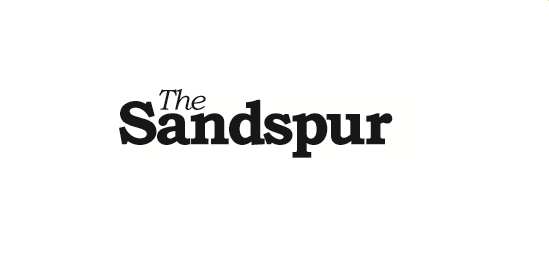



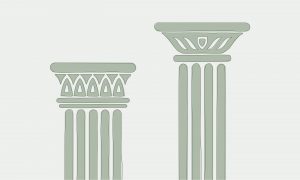
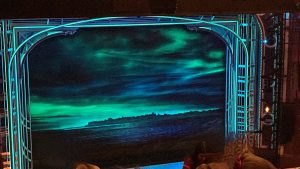

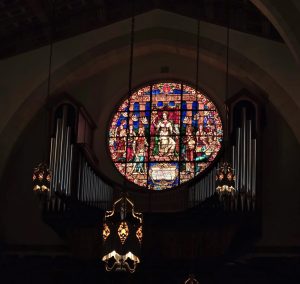
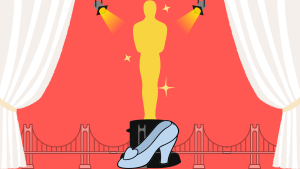
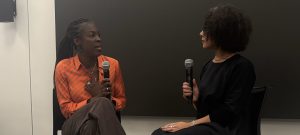
Great article, and a well-timed, well-put argument. Living in the Czech Republic, I interact with people in their teen years to people old enough to be my grandparents, and I have seen a plain difference between our education systems that is relevant here. In the CR, basic school (elementary) leads into secondary schools categorized by subject. IT and economics are the most popular choices for students, and by the time they graduate they are prepared and eligible for jobs in those fields. Secondary school provides them with cursory glances at other subjects, and universities cut out any traces of general education all together. I love the wide approach to education I was introduced to at my junior college and that I continued with later at Rollins. In what other way could I have developed interests in psychology, philosophy, and religion or decided that mathematics and chemistry were not my passions, while still following a planned path through my chosen field of study: literature and grammar?
I appreciate that the quality of education in the CR is such that their equivalent of the American high school diploma is actually not at all equal but much higher; however, I still feel that students here miss out on the chance that I had to know a much bigger world, and therefore the chance to make better-informed decisions about the directions they want their lives to take.